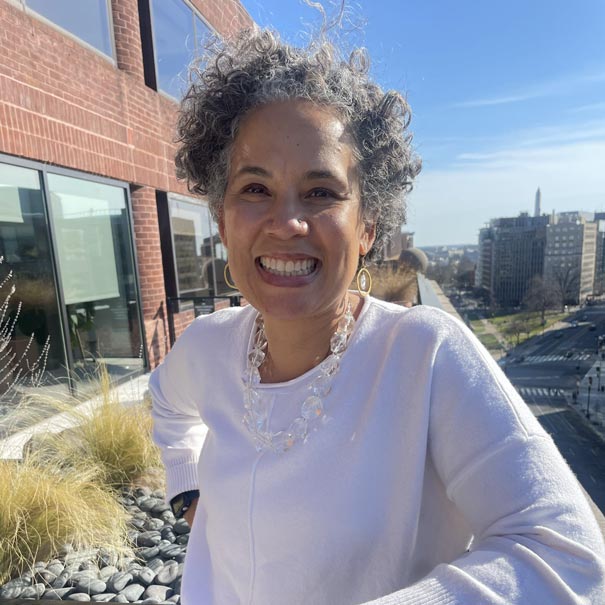Why is Black History Month important and other questions: A Q & A with Virginia Duplessis

What do you want people to know about the work that you do?
Everyone has a unique and important role in ending domestic violence – and the health care system has a really special responsibility. That’s because there are a lot of survivors who will never call a hotline and never go into a shelter, but they will go to a doctor for themselves or their kids. That’s an incredible opportunity for a health provider to talk with survivors to let them know that they’re not alone and that there is help available.
People really believe their doctors and they may think, “Well, if my doctor is talking to me about this, it must be important.” So if a health care provider brings up the importance of healthy relationships and how violence can affect your health, people really take it to heart.
What’s the hardest thing about your job?
Right now the healthcare system is experiencing a lot of burnout and turnover as a result of all the pressures of COVID. That means that it can be hard to convince them to prioritize talking about intimate partner violence with all their patients. It can feel like we are asking them to do something extra. So we have to work really hard at showing them why it’s so important to talk about these things. We want to make sure providers recognize that when they have patients who are experiencing relationship violence, it’s impacting their health. For example, maybe a survivor is not able to take a daily medication because their partner is hiding their prescriptions. If the provider just keeps telling the patient they need to take their medication, but not finding out WHY they are not taking their medication and coming up with an alternative, there is unlikely to be a change. Without addressing the violence, they’re not able to fully address their health needs.
What inspires you to continue doing the work?
I have a lot of inspirations. Right now our Survivor Leadership Cohort is inspiring. It’s a program where we bring together 10 survivors of domestic violence from around the country for support, networking and working together to improve health policy and program to be more survivor-friendly. Hearing their stories and seeing their strengths is very inspiring. It reminds me why I come to work every day. It’s so important to be guided by their experiences, and really helps center me and my work.
Why is Black History Month important through the context of your work?
The past couple years, people have been talking a lot about health equity and about how Black people are disproportionately impacted by high maternal mortality and infant mortality. We also know that Black women are at higher risk of experiencing lethal violence at the hands of a partner. Black History Month provides a great opportunity to highlight how health services and health outcomes are different for people who have experienced discrimination on both personal and system levels. It’s important to take a look at the specific health conditions, health problems and also health solutions for Black people.
It’s also exciting to be able to promote the great work that’s happening by organizations lead by and focused on the experiences of the Black community, and to be able to learn lessons from them about what’s working and how we can help reduce the disparities that we experience in health care.
What’s one thing you can’t live without?
Sunshine.





